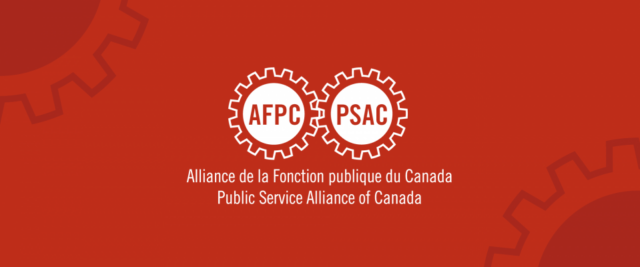In a positive step forward for variable shift schedule workers at CBSA, the Union and the Employer have signed a memorandum of agreement (MoA) settling issues around the use of vacation and compensatory leave to cover hours not worked when an employee is scheduled on Designated Paid Holidays (DPH).
Background
The employer has long insisted that variable shift workers should use leave to cover the difference between the 7.5 hours credited to day workers on a holiday and the rest of their scheduled hours of work when they could not complete a shift scheduled on a DPH, a practice that the union has always argued was contrary to the language of our collective agreements. This led the union to file an unfair labour practice (ULP) on March 3, 2022, regarding the employer’s requirement for an employee who is scheduled to work on a DPH, and who requests not to complete an entire shift, to use vacation or compensatory leave to account for the unworked hours. On October 10, 2024, the Guay-Bassett decision addressed the use of sick or family-related leave in a similar context, providing much needed clarity by finding that the employer’s practice was indeed incompatible with our collective agreements.
In light of the 2024 Guay-Bassett decision, the employer and the union have now agreed that, moving forward, the employer will cease the practice of requiring that employees use any leave — sick, family-related, vacation, and compensatory — to cover unworked hours on a scheduled DPH. The new MoA also aims to address outstanding cases where employees were required to use vacation or compensatory leave in that context, for the period between May 3, 2022 (when the ULP was filed) and October 10, 2024 (when Guay-Bassett was issued).
MoA implementation: Information required from members
As per the MoA, the employer will reimburse affected employees who were required to use vacation or compensatory leave to cover hours not worked at the beginning or end of a DPH, for the period between May 3, 2022 and October 10, 2024. As part of the implementation of the agreement, the union has sixty (60) days from the date of signing — May 20, 2025 — to provide a list of affected employees to the employer.
Therefore, if you are currently or were previously working under a variable shift schedule and you were required by management to use vacation or compensatory leave to make up for unworked hours you were scheduled to work on a DPH for the period from May 3, 2022 to October 10, 2024, please forward the following information to chantal.beauchamp@ciu-sdi.ca as soon as possible and by Monday, July 14 at the latest to ensure you are included in the list provided to the employer:
- Grievance (if any) filed on the matter
- Proof of management requesting that you use vacation or compensatory leave, such as emails
- Specific information about the affected shift (date, hours, amount of leave used)
- Work location, name of involved managers, etc.
If you were required to use vacation or compensatory leave as per the context provided above prior to May 3, 2022, please reach out to your Branch President so your case can be assessed. Branch Presidents can reach out to their CIU Labour Relations Officer for further guidance.
Branch Presidents should also forward any relevant information they have pertaining to their members to chantal.beauchamp@ciu-sdi.ca prior to the deadline indicated above.
The employer will then have sixty days to review the list provided by the union. We will make sure to inform affected employees of any important progress.
Guay-Bassett Decision: Sick leave and family-related leave
The memorandum of agreement also includes language stemming from the 2024 Guay-Bassett Decision around reimbursing employees who filed grievances on the use of sick or family-related leave to account for unworked hours on a scheduled DPH. As per the agreement, both parties will be working together to confirm the list of affected grievances within thirty (30) days from the date of signing (May 20, 2025). Members who have relevant active grievances are therefore invited to provide the following information to chantal.beauchamp@ciu-sdi.ca as soon as possible and by Monday, June 14 at the latest to ensure they are included in the final list that will be reviewed by the employer:
- Grievance wording and number
- Which stage the grievance is at (as the union does not have the ability to track grievances prior to the final level)
The employer will then have ninety days to review the list provided by the union. We will make sure to inform affected employees of any important progress.
Branch Presidents should also forward any relevant information they have pertaining to chantal.beauchamp@ciu-sdi.ca prior to the deadline indicated above.







